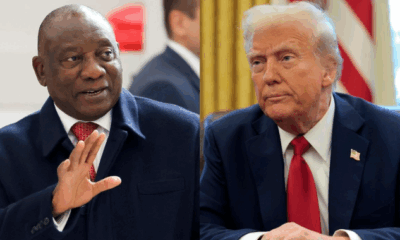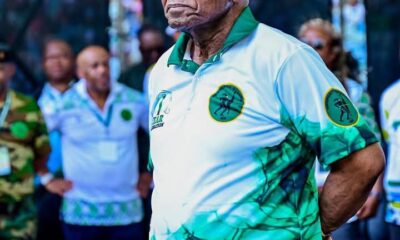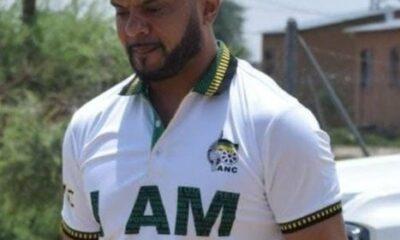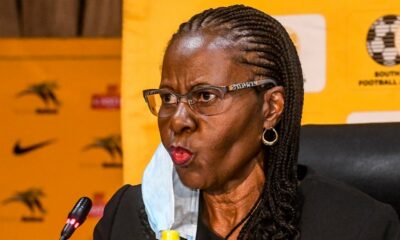News
Jacob Zuma’s Morocco Trip Sparks Outrage Over Flag, Foreign Policy and Political Loyalty
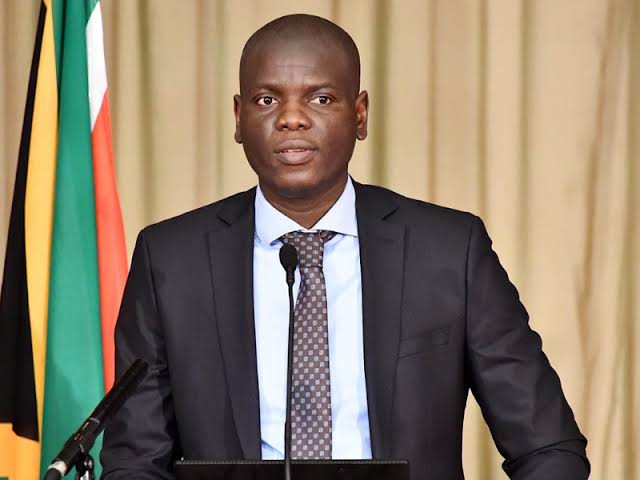
DIRCO slams ‘abuse’ of SA flag, while critics call Zuma a sellout
When Jacob Zuma appeared in Rabat on July 15, seated beside Moroccan officials with the South African flag at his side, it wasn’t just another photo opportunity. It was political dynamite.
The former president and now-leader of the uMkhonto weSizwe (MK) Party was in Morocco for talks with Foreign Minister Nasser Bourita. But it wasn’t the handshake that caused a storm—it was the backdrop.
South Africa’s national flag, proudly displayed during the meeting, has since sparked a full-blown diplomatic row back home. The Department of International Relations and Cooperation (DIRCO) says the use of the flag amounts to a breach of protocol and falsely implies official state endorsement of a meeting that had nothing to do with the government.
Lamola: Zuma Has No Mandate
DIRCO Minister Ronald Lamola minced no words.
“The South African government strongly protests the use of our national symbols,” he said, describing it as an inappropriate and misleading act. His department has formally expressed its concern to the Moroccan government, calling on it to refrain from using state symbols in what is essentially a meeting between a foreign government and a political opposition figure.
According to DIRCO spokesperson Chrispin Phiri, national symbols carry diplomatic weight, and using them in unofficial contexts muddies international relationships.
“This meeting was not a state-to-state engagement,” said Phiri. “The flag should not have been there.”
ANC, EFF, and Others Tear Into Zuma
The backlash didn’t end with DIRCO. Zuma’s own political history came under fire from former comrades and rivals alike.
ANC Secretary-General Fikile Mbalula accused Zuma of betraying the people of Western Sahara—a long-disputed territory claimed by Morocco but recognised by the African Union as occupied. South Africa has historically supported the Sahrawi people’s right to self-determination.
“Zuma is no messiah,” Mbalula said. “He is a sellout of note.”
Even Floyd Shivambu, a former ally and ex-MK Party secretary-general, condemned the visit. He labelled it “opportunistic” and contrary to the liberation values Zuma once championed.
What’s the Fuss About Western Sahara?
At the core of the controversy lies a decades-long geopolitical battle. Western Sahara, a stretch of desert along Africa’s northwest coast, was annexed by Morocco in 1975 after Spain pulled out. The Polisario Front, representing the native Sahrawi people, has been fighting for independence ever since.
South Africa has long aligned with the Sahrawi cause, backed by the African Union and international law. Zuma’s apparent support for Morocco’s sovereignty over the region is seen by critics as not just tone-deaf, but a direct betrayal of post-apartheid foreign policy.
MK Party Defends Move: ‘Morocco Helped Us First’
The MK Party didn’t stay silent. It released a formal statement doubling down on the visit, highlighting Morocco’s historic role in supporting South African liberation movements.
“Morocco was the first country to support Umkhonto weSizwe in 1962,” the statement read. “Its current efforts to reclaim territorial integrity align with our values of African unity and sovereignty.”
But that logic didn’t sit well with many observers. Dr. David Matsanga of the Pan African Forum went so far as to call Zuma’s stance a “betrayal of African solidarity”.
“Endorsing this occupation is endorsing colonialism,” Matsanga said. “It dishonours the legacy of the African Union.”
Social Media Reacts: ‘This Isn’t What We Fought For’
Online, the fury was palpable. Hashtags like #ZumaSellout and #HandsOffWesternSahara trended on X (formerly Twitter). Critics questioned Zuma’s motives, suggesting political opportunism or a desperate bid for international legitimacy.
Some users shared photos of Sahrawi children alongside Zuma’s Moroccan meeting, pointing out the contrast between liberation rhetoric and diplomatic reality.
A popular X post summed up the sentiment:
“This isn’t what we fought for. Solidarity means consistency.”
A Dangerous Game with Flags and Foreign Policy
This latest controversy shows how quickly foreign policy can be weaponized in domestic politics. Zuma may have gone to Rabat as a private citizen and party leader, but his legacy as a former head of state means he carries unintended symbolism wherever he goes.
And in a country as politically charged as South Africa, even a flag in the wrong hands can set off a firestorm.
{Source: IOL}
Follow Joburg ETC on Facebook, Twitter , TikTok and Instagram
For more News in Johannesburg, visit joburgetc.com



